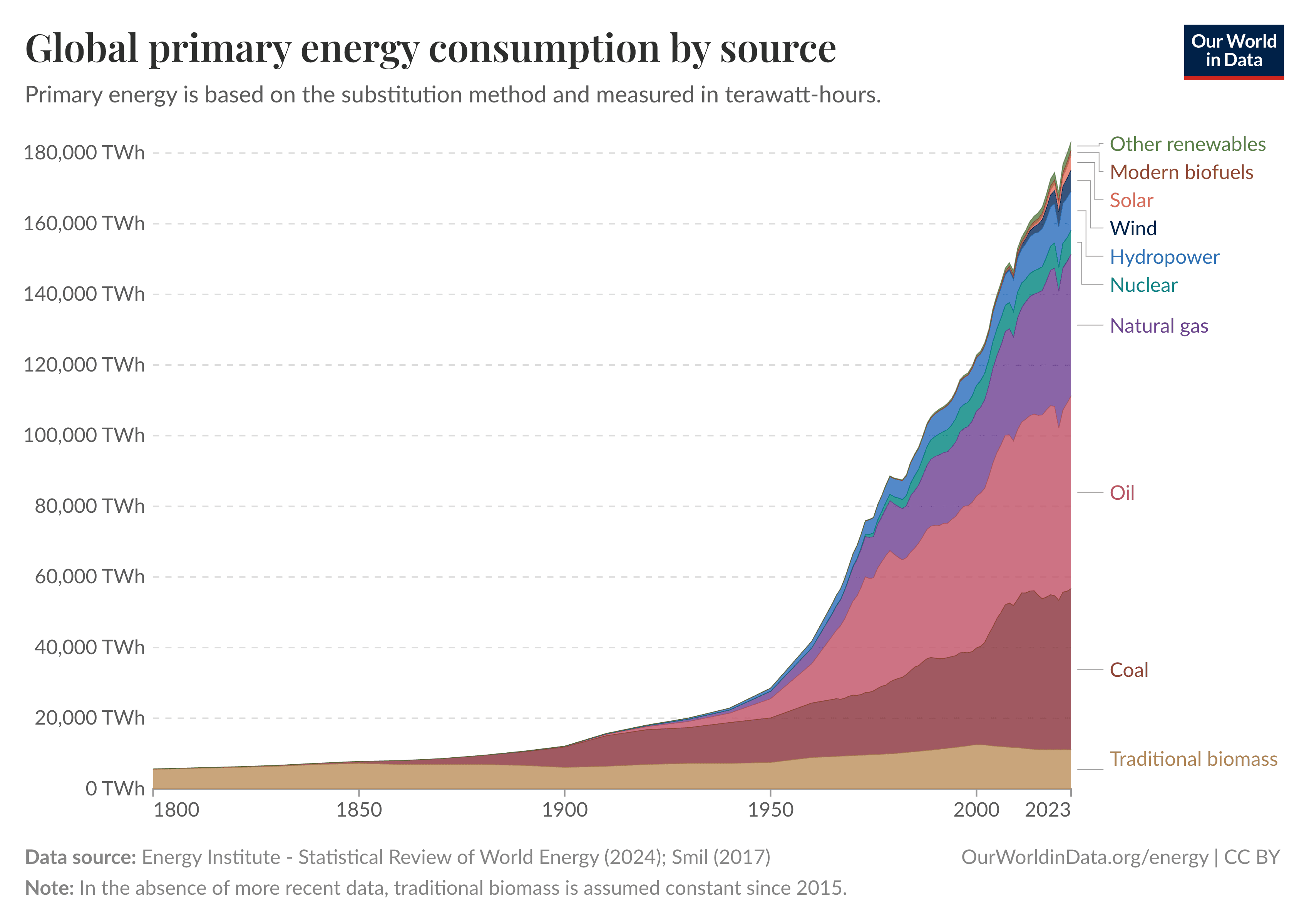AI is Oil
·4 min read
I've been searching for a historical comparison of AI entering the economy. My current working theory is AI will have as big of an impact as oil.
Cost reduction
The first US oil rush kicked off in 1859. The first oil-based product with massive product-market fit: kerosene.
Why?
- The previous lamp fuel was whale oil (hard to get, expensive, dead whales)
- Pre-electricity, lamps were a way to get more productive hours in the day
- Kerosene was dramatically cheaper
More specifically, kerosene was ~10 to 20 cents per gallon with whale oil selling around $1.77/gal.
The product was better and 90% cheaper.
We are in the kerosene era of AI simply playing out the first order impacts of an API that sells a brainpower replacement for pennies.
While AI needs guardrails, application layer startups are directing these models so that they write better and better code every day.
Developer hours are expensive. 175k/yr + 20% (fully loaded cost) puts you around $110 per hour.
Devin sells Agent Compute Units (ACUs) for $2.25. In a simple test I ran to update my personal site, Devin took 10 minutes and consumed 1.38 ACUs. If we say that it would have taken me 7 minutes to push the change we're looking at $12.83 for me to complete it, $3.10 for Devin.
Not quite 90% cheaper yet but we're close (75.8%)*.
this is valuing my opportunity cost of those 7 minutes as my wage only which is probably not the right way to think about background agents since they can be spun up in parallel.
Endless demand
Up next are the second and third order products. Henry Ford was not born until four years after the oil boom start. Plastics, gasoline, cosmetics, drugs, glues, paint, rubber — all yet to be invented.

The world seems to demand endless amounts of energy. This is largely because energy is one of the rare items we can trade for time.
I believe dramatically more software should exist in the world. Software has historically had a high initial investment cost due to expensive engineering salaries and opportunity cost (why work on a small TAM problem when you can work on a large TAM problem?)
AI can change this by enabling more apps to make it from the idea → prototype phase. I'm not making the case that AI will replace engineering fully, just that it reduces the cost of an MVP that serves tens of users.
That app that serves tens of users has a higher chance of making it to the holy land of product-market fit.
AI cost savings apply throughout the rest of the product's lifecycle too, but the main change here is in lowering the hurdle so that ideas are turned into products more frequently.
aside: there are interesting second order impacts to engineering salaries here. If you play out more, smaller firms, engineers will be more critical to the operation of the biz due to specific domain knowledge & key man risk. Long term I believe salaries stay flat or increase.
We're still early
J. Paul Getty (Getty Museum, Getty Images, Getty Oil Company) watched his father leave his job as a lawyer in Minneapolis to move to Oklahoma to chase oil in 1903. He got started on his own oil wells in 1915.
In 1929 when the stock market crashed and everyone else was selling, Getty had the conviction to think long term and purchase oil companies for pennies on the dollar.
If you look at 1929 in the above consumption chart you can see he made a pretty good decision.
People who obsess over the latest AI trends every day might think they missed the boat. You think, "maybe it's too late to write the blog post, create the GPT wrapper, or watch the Karpathy LLM YouTube series."
It's still early.
Stay up to date
Get essays and field notes delivered as soon as they publish.